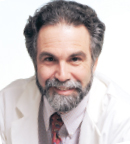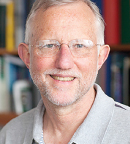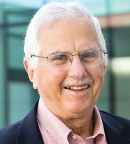
William G. Kaelin,
MD

Peter J. Ratcliffe, MD, FRCP, FMedSci, FRS

Gregg L. Semenza, MD, PhD

Ralf F.W. Bartenschlager, PhD

Charles M. Rice,
PhD

Michael J. Sofia, PhD

Bruce M. Alberts, PhD
The Albert and Mary Lasker Foundation has announced the winners of the 2016 Lasker Awards for medical science: William G. Kaelin, MD; Peter J. Ratcliffe, MD, FRCP, FMedSci, FRS; and Gregg L. Semenza, MD, PhD for basic medical research; Ralf F.W. Bartenschlager, PhD; Charles M. Rice, PhD; and Michael J. Sofia, PhD, for clinical research; and Bruce M. Alberts, PhD, for special achievement. The 2016 Lasker Awards carry an honorarium of $250,000 for each category.
“The work of this year’s honorees epitomizes the power and impact of dedication to rigorous and innovative medical research. These outstanding advances have illuminated fundamental aspects of life, developed a cure for a deadly disease, and raised public engagement with science,” said Claire Pomeroy, President of the Lasker Foundation. “The innovative and highly original achievements of these scientists highlight the critical importance of sustained support for biomedical research in attaining a healthier future for all.”
“The 2016 Lasker winners combined exceptional insight, creativity, and perseverance in pursuing crucial questions in medical science,” said Joseph L. Goldstein, University of Texas Southwestern Medical Center, and Chair of the Lasker Medical Research Awards Jury. “This year’s Basic Award laureates have deepened our understanding of the fundamental pathways by which we sense and respond to the presence of oxygen; the 2016 Clinical Award winners have provided an ingenious method to study the replication of the hepatitis C virus and developed a potent cure for the disease; and the Special Achievement award laureate has tirelessly promoted science education as a means for improving human welfare and exemplified the best in research excellence and scientific statesmanship.”
The 2016 Albert Lasker Basic Medical Research Award
The 2016 Albert Lasker Basic Medical Research Award honors Dr. Kaelin (Dana-Farber Cancer Institute/Harvard Medical School), Dr. Ratcliffe (University of Oxford/Francis Crick Institute), and Dr. Semenza (Johns Hopkins University School of Medicine), for their discovery of the pathway by which cells from humans and most animals sense and adapt to changes in oxygen availability.
Animals require oxygen to extract energy from food, but too much of the chemical creates peril, as certain oxygen-containing compounds wreak molecular havoc. To handle this challenge, organisms have evolved elaborate systems to furnish optimal supplies.
Drs. Kaelin, Ratcliffe, and Semenza deciphered the core molecular events that explain how almost all multicellular animals tune their physiology to cope with varying quantities of life-sustaining oxygen, thus exposing a unique signaling scheme. The biologic processes that these findings revealed have unearthed possible strategies to rev up or reign in the body’s response to oxygen, possibly leading toward new therapeutics for a wide range of disorders such as anemia, cardiovascular disease, macular degeneration, and cancer.
The 2016 Lasker-DeBakey Clinical Medical Research Award
The 2016 Lasker~DeBakey Clinical Medical Research Award honors Dr. Bartenschlager (University of Heidelberg), Dr. Rice (Rockefeller University), and Dr. Sofia (formerly at Pharmasset, now at Arbutus Biopharma), who developed a system to study the replication of the virus that causes hepatitis C and used this system to revolutionize the treatment of this chronic, often lethal disease.
Hepatitis C virus causes chronic liver infection in somewhere between 130 and 170 million people worldwide and leads to more than 350,000 deaths each year. No vaccine is available and, without treatment, about 15% to 30% of infected individuals develop liver failure or cancer. Until the work of Drs. Bartenschlager, Rice, and Sofia, therapy included drugs with side effects that many people could not tolerate and that often did not cure the disease.
Drs. Bartenschlager and Rice created a method whereby hepatitis C virus can be replicated inside lab-grown human cells. Dr. Sofia then exploited this hepatitis C virus replicon system to develop a medicine with unprecedented potency and safety that revolutionized treatment for this previously chronic and potentially deadly viral disease. These victories culminated in a safe and effective oral therapy for hepatitis C virus, which set a new standard and transformed the treatment of a devastating viral illness.
The 2016 Lasker-Koshland Special Achievement Award in Medical Science
The 2016 Lasker-Koshland Special Achievement Award honors Dr. Alberts (University of California, San Francisco), for fundamental discoveries in DNA replication and protein biochemistry; for visionary leadership in directing national and international scientific organizations; and for passionate dedication to improving education in science and mathematics.
Dr. Alberts devised powerful biochemical tools that helped him understand the mechanism by which cells copy DNA, thereby establishing a new paradigm of molecular machines that perform crucial physiologic functions. Through leadership, vision, and hard work, he has improved science education for students from K to 12 to postdoctoral studies. He coauthored the widely used textbook Molecular Biology of the Cell, now in its 6th edition. As President of the U.S. National Academy of Sciences and in other leadership roles, Dr. Alberts has advocated tirelessly to improve science education in the classroom and among the public. ■

